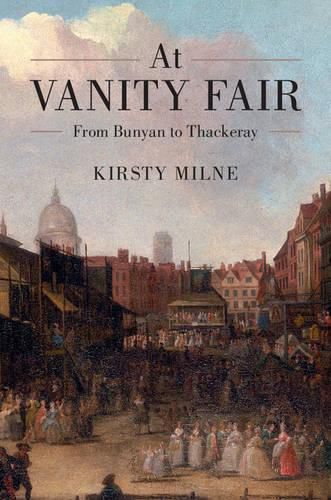Readings Newsletter
Become a Readings Member to make your shopping experience even easier.
Sign in or sign up for free!
You’re not far away from qualifying for FREE standard shipping within Australia
You’ve qualified for FREE standard shipping within Australia
The cart is loading…






At Vanity Fair tells the story of Bunyan’s powerful metaphor, exploring how Vanity Fair was transformed from an emblem of sin and persecution into a showcase for celebrity, wealth and power. This literary history, focusing on reception, adaptation and influence, traces the fictional representation of Vanity Fair over three centuries from John Bunyan’s masterpiece, The Pilgrim’s Progress (1678), to William Makepeace Thackeray’s own Vanity Fair (1847-8). It explores the influence of anonymous journalists and booksellers alongside well-known authors including Ben Jonson, Samuel Richardson and Thomas Carlyle. Over time, Bunyan’s dystopian fantasy has been altered and repurposed to characterise consumer capitalism, channelling memories that inform and unsettle modern hedonism. By tracking the idea of ‘Vanity Fair’ against this shifting background, the book illuminates the relationship between the individual and the collective imagination, between what is culturally available and what is creatively impelled.
$9.00 standard shipping within Australia
FREE standard shipping within Australia for orders over $100.00
Express & International shipping calculated at checkout
At Vanity Fair tells the story of Bunyan’s powerful metaphor, exploring how Vanity Fair was transformed from an emblem of sin and persecution into a showcase for celebrity, wealth and power. This literary history, focusing on reception, adaptation and influence, traces the fictional representation of Vanity Fair over three centuries from John Bunyan’s masterpiece, The Pilgrim’s Progress (1678), to William Makepeace Thackeray’s own Vanity Fair (1847-8). It explores the influence of anonymous journalists and booksellers alongside well-known authors including Ben Jonson, Samuel Richardson and Thomas Carlyle. Over time, Bunyan’s dystopian fantasy has been altered and repurposed to characterise consumer capitalism, channelling memories that inform and unsettle modern hedonism. By tracking the idea of ‘Vanity Fair’ against this shifting background, the book illuminates the relationship between the individual and the collective imagination, between what is culturally available and what is creatively impelled.